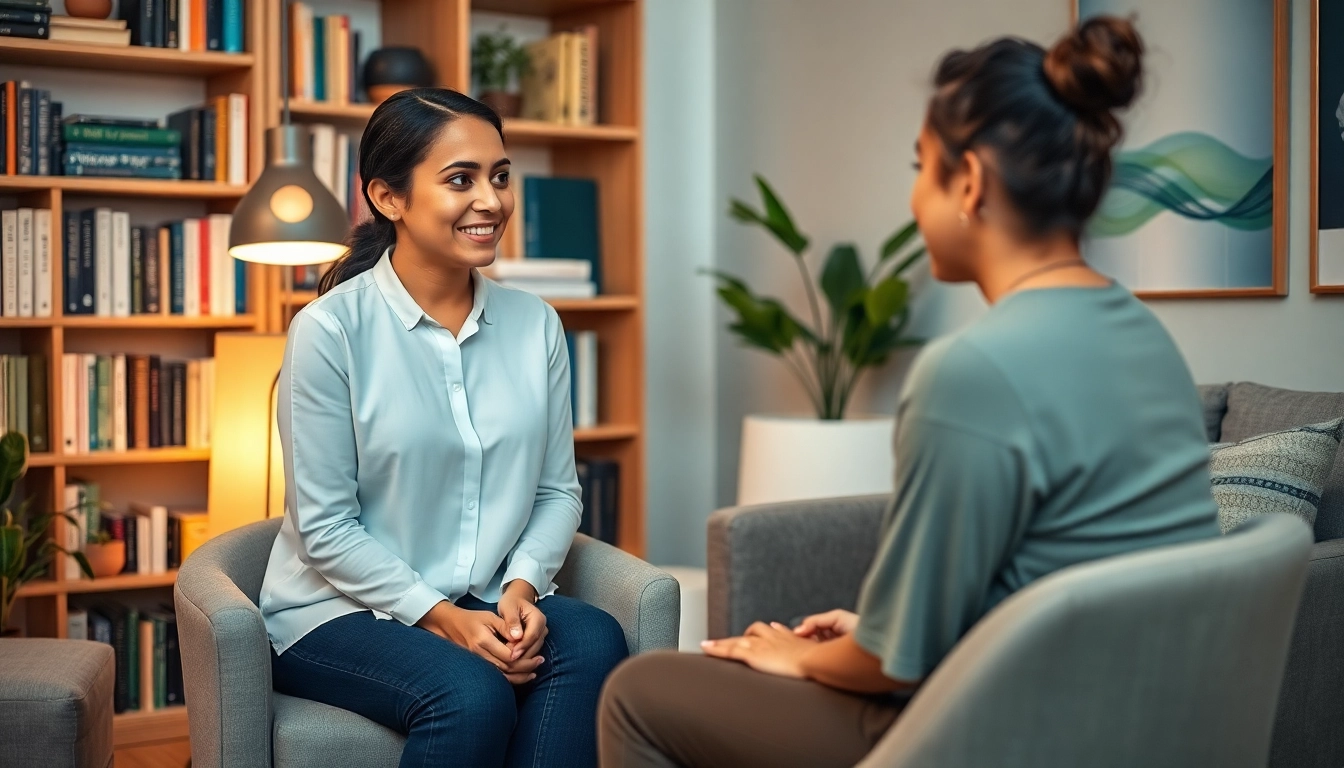
What is an Attachment Theory Specialist?
Definition and Scope of Practice
An attachment theory specialist is a mental health professional who possesses a deep understanding of attachment theory and its implications for psychological health and relationships. Typically, these specialists are psychologists, social workers, or licensed therapists who have undergone additional training and certification in attachment-based practices. Their expertise allows them to assess, diagnose, and treat clients by focusing on how early relationships with caregivers shape emotional development and interpersonal dynamics throughout life.
These specialists utilize attachment theory as a framework to explore individual behaviors, relational patterns, and emotional responses. Their practice includes therapy modalities that are keenly focused on the therapeutic relationship as a vehicle for change. By fostering a secure base with their clients, they promote healing and self-awareness, enabling clients to better manage their emotions, thoughts, and actions.
Importance of Specialization in Therapy
Specialization in attachment theory is crucial as it allows therapists to better understand the foundation of their clients’ emotional struggles. Research has consistently shown that attachment styles originating in childhood significantly affect adult relationships and mental health. An attachment theory specialist can pinpoint maladaptive patterns and help clients develop healthier attachments. This specialization is particularly beneficial for clients who have experienced trauma, loss, or significant relational disruptions, as understanding the roots of their attachment style is essential for repairing their emotional wounds.
Key Qualifications and Credentials Required
To be recognized as an attachment theory specialist, a therapist typically holds advanced degrees in mental health-related fields, such as psychology, social work, or counseling. Additionally, many complete postgraduate training in attachment theory and its associated therapeutic methods. Credentials might include certifications from organizations that focus on attachment-based therapies, where they learn specific techniques, assessment strategies, and treatment frameworks tailored to attachment issues.
Understanding Attachment Theory
Historical Background and Development
Attachment theory was initially developed by British psychologist John Bowlby in the mid-20th century. His work focused on the bonds between children and their primary caregivers, arguing that these formative relationships are critical for emotional and social development. Bowlby’s observations led to the conclusion that the security and quality of early attachment relationships have lasting effects on later emotional and relational health.
Mary Ainsworth expanded on Bowlby’s work through her development of the “Strange Situation” protocol, a study that assessed how children responded to separations and reunions with their primary caregivers. The findings generated a deeper understanding of different attachment styles—secure, anxious, avoidant, and disorganized—each reflecting different patterns of responding to caregivers’ availability and responsiveness.
Four Main Attachment Styles
Attachment theory identifies four primary attachment styles:
- Secure Attachment: Individuals with secure attachment feel comfortable with intimacy and independence. They view themselves positively and are generally able to establish healthy relationships.
- Anxious Attachment: Those with an anxious attachment style often seek high levels of intimacy and approval, displaying clinginess and fear of abandonment. They may struggle with self-esteem and trust issues.
- Avoidant Attachment: Individuals with an avoidant attachment style tend to maintain emotional distance, valuing independence over closeness. They may appear aloof or withdraw from emotional connections.
- Disorganized Attachment: This style combines elements of anxious and avoidant attachments. Individuals exhibit contradictory behaviors and often stem from traumatic or inconsistent caregiving experiences.
Impact of Attachment Styles on Relationships
Understanding one’s attachment style is critical because it heavily influences how individuals relate to others. For instance, securely attached individuals often engage in open, trusting relationships, while those with anxious attachments may find themselves trapped in cycles of validation seeking and fear of withdrawal. Conversely, avoidant individuals might prioritize self-reliance, often leading to conflict or emotional disconnect with partners. Disorganized attachment can manifest in unstable and unpredictable relationship dynamics, making it crucial for specialists to conduct assessments to help clients recognize and understand these patterns in their relationships.
How an Attachment Theory Specialist Can Help
Therapeutic Approaches and Techniques
Attachment theory specialists employ various therapeutic approaches designed to assist clients in understanding and modifying their attachment behaviors. Some of the most prevalent approaches include:
- Emotionally Focused Therapy (EFT): EFT aims to restructure emotional responses in relationships, facilitating secure attachments between partners by promoting emotional awareness and responsiveness.
- Attachment-Based Family Therapy (ABFT): This technique focuses on building and repairing relationships within families, addressing attachment distress among family members.
- Mindfulness and Self-Compassion Practices: These practices help clients develop a more profound sense of self-awareness and self-acceptance, often countering the negative self-perceptions associated with insecure attachment styles.
Working with Individuals vs. Couples
An attachment theory specialist can work with both individuals and couples, tailoring their approach based on the clients’ unique needs and attachment challenges. In individual therapy, the focus may be on self-understanding, processing past experiences, and developing healthier attachment patterns. In couples therapy, the specialist may facilitate dialogue around attachment needs and fears, helping partners understand how their attachment styles interact and influence the relationship dynamics.
Real-Life Case Studies and Success Stories
Many individuals and couples have experienced transformative healing through attachment-based therapies. For instance, a couple struggling with consistent arguments may discover that their conflicts stem from one partner’s avoidant attachment style, which creates emotional distance. With guidance from an attachment theory specialist, they could learn to express needs more clearly and develop empathy for each other’s relational behaviors, resulting in a reconciled and healthier relationship.
One success story involves an individual with anxious attachment who learned the roots of their anxiety in early caregiving experiences. Through specialized therapy, they were able to challenge maladaptive beliefs about themselves and relationships, ultimately developing secure attachment behaviors. These transformative experiences highlight the profound impact of working with an attachment theory specialist.
Finding the Right Attachment Theory Specialist
What to Look for When Choosing a Therapist
Finding the right attachment theory specialist requires careful consideration. Key factors to look for include:
- Qualifications: Verify that the therapist has the necessary credentials relevant to attachment theory and related therapeutic practices.
- Experience: Look for therapists with substantial experience in attachment-focused therapy, particularly if you have a specific attachment-related concern.
- Approachability: A good rapport and a sense of comfort with the therapist are essential for effective therapy. Initial consultations can help gauge this connection.
Questions to Ask During the Initial Consultation
During the initial consultation, prospective clients can benefit from asking the following questions:
- Can you describe your training and experience in attachment theory?
- Are you familiar with my specific attachment style and how it might affect our work together?
- What therapeutic modalities do you employ that pertain to attachment issues?
Resources for Finding Qualified Specialists
Numerous resources can assist individuals in locating qualified attachment theory specialists. Websites like Psychology Today and specialized therapist directories often allow users to filter for therapists by focus area. Additionally, local mental health organizations may provide referrals, and community centers can often recommend professionals who specialize in attachment-related therapy.
Continuing Education and Training in Attachment Theory
Recommended Courses and Certifications
For mental health professionals looking to specialize in attachment theory, various educational programs and certifications are available. Organizations like the Attachment-Focused Treatment Institute offer rigorous training for clinicians. Other educational entities provide workshops, online courses, and additional certifications focusing on attachment theory in practice.
Staying Updated with Latest Research
Maintaining relevance in the field requires therapists to stay abreast of the latest research and advancements in attachment theory. Engaging in professional development through journals, conferences, and continued education courses is vital for deepening the understanding of contemporary issues and practices in attachment-based therapy.
Networking Opportunities for Professionals
Networking within the mental health community is essential for attachment theory specialists. Professional organizations often host meetings, workshops, and online forums that foster collaboration among practitioners. Joining such groups helps specialists exchange knowledge, discuss challenges, and stay informed about the latest techniques and best practices in attachment-based interventions.





